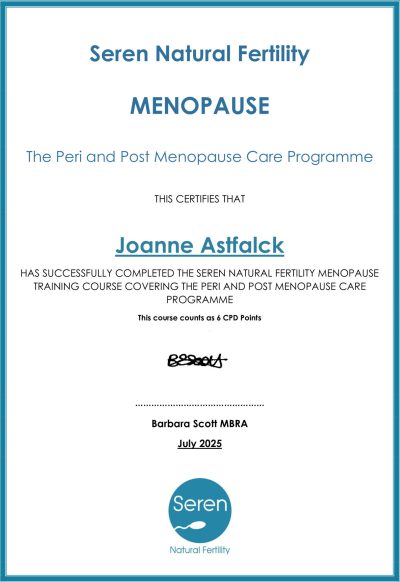Perimenopause /Menopause Reflexology

I have been trained by the world wide acclaimed author Barbara Scott to understand how perimenopause and menopause affects woman’s bodies by balancing the hormones by reflexology it can really calm the symptoms down to help us ladies lead a better life having gone through all this myself I have made it a mission to help ladies suffering daily I know the struggle to even find the energy to get out of bed some days making my passion in this area even more so rewarding
If you are suffering with any of the symptoms below get in contact with me ,it does take regular appointments to Initially get things under control but then after this time I recommend coming every 3-4 weeks to keep the hormones balanced
Signs And Symptoms
- Irregular periods.As ovulation becomes more unpredictable, the length of time between periods may be longer or shorter, your flow may be light to heavy, and you may skip some periods. If you have a persistent change of seven days or more in the length of your menstrual cycle, you may be in early perimenopause. If you have a space of 60 days or more between periods, you’re likely in late perimenopause.
- Hot flashes and sleep problems.Hot flashes are common during perimenopause. The intensity, length and frequency vary. Sleep problems are often due to hot flashes or night sweats, but sometimes sleep becomes unpredictable even without them.
- Mood changes.Mood swings, irritability or increased risk of depression may happen during perimenopause. The cause of these symptoms may be sleep disruption associated with hot flashes. Mood changes may also be caused by factors not related to the hormonal changes of perimenopause.
- Vaginal and bladder problems.When estrogen levels diminish, your vaginal tissues may lose lubrication and elasticity, making intercourse painful. Low estrogen may also leave you more vulnerable to urinary or vaginal infections. Loss of tissue tone may contribute to urinary incontinence.
- Decreasing fertility.As ovulation becomes irregular, your ability to conceive decreases. However, as long as you’re having periods, pregnancy is still possible. If you wish to avoid pregnancy, use birth control until you’ve had no periods for 12 months.
- Changes in sexual function.During perimenopause, sexual arousal and desire may change. But if you had satisfactory sexual intimacy before menopause, this will likely continue through perimenopause and beyond.
- Loss of bone.With declining estrogen levels, you start to lose bone more quickly than you replace it, increasing your risk of osteoporosis — a disease that causes fragile bones.
- Changing cholesterol levels.Declining estrogen levels may lead to unfavorable changes in your blood cholesterol levels, including an increase in low-density lipoprotein (LDL) cholesterol — the “bad” cholesterol — which contributes to an increased risk of heart disease. At the same time, high-density lipoprotein (HDL) cholesterol — the “good” cholesterol — decreases in many women as they age, which also increases the risk of heart disease.
